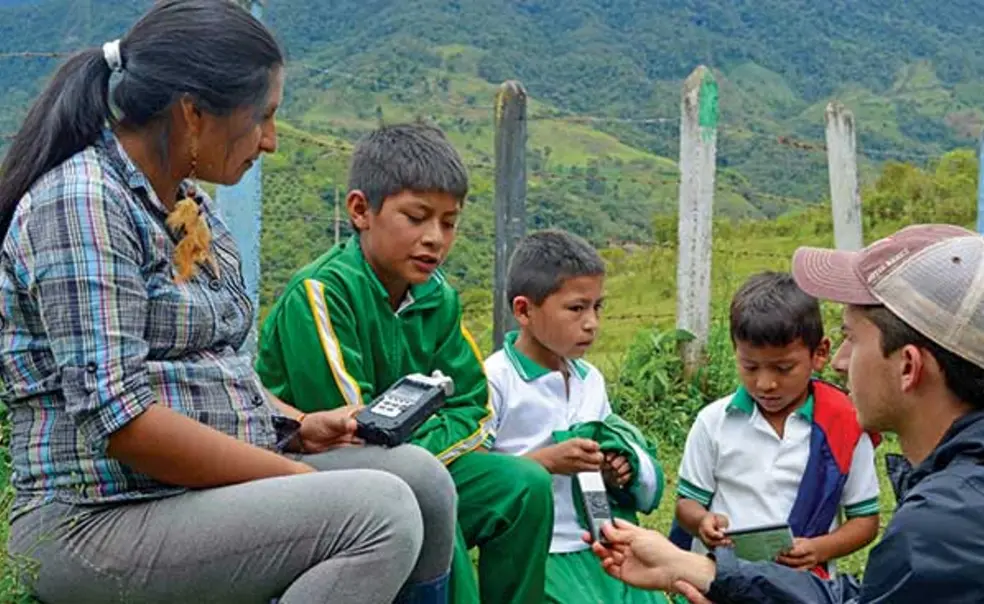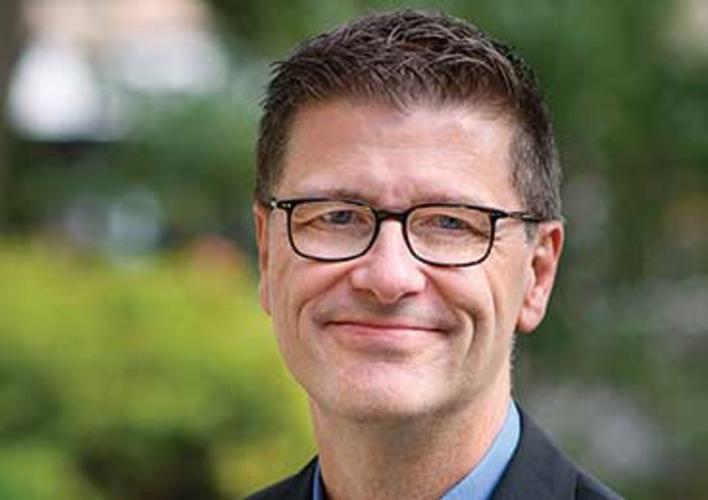Journalism on the Rise
Interest in the program is strong, despite the industry’s tough times
Joe Stephens is the Ferris Professor of Journalism in Residence and the founding director of the Program in Journalism, which awarded its first certificates to 10 graduating seniors in June. Stephens spent nearly two decades on the investigative team at The Washington Post; he is a three-time winner of the George Polk Award and a three-time finalist for the Pulitzer Prize. He recently gave PAW an update on the program.
What’s the level of interest in journalism on campus?
This is a time when journalism is under a lot of stress more broadly. The economic model is falling apart. Newspapers are laying people off. Local newspapers are closing. There are a lot of political attacks. The president of the United States has called journalists the enemies of the people.
Despite all of that, interest and enthusiasm among the undergraduates are swelling. Maybe because of the challenges journalism is facing, we find students really interested in what journalism is about, where it comes from, how it’s created, and its central role in democracy.
How is the journalism program changing?
It’s a great time to be in the journalism program at Princeton because in 2018, the faculty voted unanimously to create a formal [certificate] program. ... We’re kind of doubling down on it at Princeton, saying, “This is important for democracy.”
And so, with 60 years of experience and success, we get a chance to rethink everything. We’re taking what was a series of very respected, very successful individual seminars and trying to form them into a guided pathway for students who are interested in journalism either as a career or just as a way to understand how to know about the world and to gain skills that they can use in whatever discipline or profession they go into. ... One of the challenges that’s been given to the new program is to weave this more densely into the fabric of academic life at Princeton.
How does the program differ from what is offered at journalism schools?
Journalism schools are very vocational; they really are teaching skills and helping you get a job. Now, we’re teaching skills as well. We generally teach courses in investigative reporting and covering politics and narrative writing. We have audio journalists come and talk about how to do podcasts. So we’re teaching skills, and our students do very well on the job market in a challenging time, but that’s not our primary goal.
What’s the No. 1 goal?
We’re here to think more deeply about the issues surrounding journalism, and we work very hard to make sure that our seminars are useful to students who never have any thoughts of getting a job in journalism. I think journalism has always been seen as an intellectual endeavor at Princeton, and of course, the backbone of our journalism seminars has been John McPhee [’53]: He’s been here for a long time and sets a very high standard. Princeton teaches students how to think critically, how to write clearly and forcefully. I suspect that a majority of our students really don’t have plans to go on in journalism. There are just so many applications of the skills that go into journalism.
What types of students are taking journalism courses?
We get the ones you might immediately suspect: the English majors, creative writing students. We get sociologists and anthropologists, because the way they look at the world and approach issues is really similar to journalists. But we really get everyone. We get a lot of computer science students; that brings a whole new approach to journalism. A huge amount of journalism now is based on data analysis, and they bring a lot of enthusiasm to the classroom.
What’s the outlook for careers in journalism?
I honestly believe that for students starting out it’s a very good time because journalism is being remade, and they have a chance to get in on the ground floor and ride up whatever the new forms of journalism coming along are. There are a lot of startups that need young people with energy and ideas and who also understand digital media and social media. And if they do their job right, even at a news organization we may not have heard of, they’ve got the chance to go viral and have actual international impact.
What types of projects have the journalism certificate students worked on?
We had one student who used data to dive into the phenomenon of news deserts — parts of the U.S. not adequately covered by journalists — and the depth of that problem. We had one student who went down a river in Colombia and wrote a rich narrative about life and people along this river. We had a student who went to the South Pacific to a remote island and wrote about secretive migrant camps there, and the lives of people in the refugee camps. And there are a lot of people writing about migration across courses.
What makes a good journalism student?
Curiosity, mainly. If you’re curious about the world, and you bring your interests and your skill set and the worldview of your discipline to the journalism class, it just makes your journalism that much better.
Interview conducted and condensed by W.R.O.













1 Response
Norman Ravitch *62
6 Years AgoWhat Is Journalism?
Is it anything more than contemporary history in the making?